With *Monster Hunter Wilds* breaking Steam records and *Resident Evil* more popular than ever, thanks to *Village* and a series of stellar remakes, it's clear that Capcom is currently riding a wave of success. However, this wasn't always the case. Less than a decade ago, after a string of critical and commercial flops, Capcom found itself struggling. It had lost both its direction and its audience.
Capcom was grappling with an identity crisis. The survival horror genre, which *Resident Evil* had pioneered, seemed to have lost its edge following *Resident Evil 4*. Meanwhile, *Street Fighter*, another major franchise, was struggling after the lukewarm reception to *Street Fighter 5*. It could have been the end for Capcom and its beloved games.
Yet, amidst these challenges, Capcom found a way to rejuvenate its iconic series. A shift in game development strategy, bolstered by the introduction of a powerful new game engine, breathed new life into these franchises. This change not only revitalized Capcom but also set the stage for a series of critical and financial successes that have firmly reestablished the company as a major player in the gaming industry.
Resident Evil Lost Its Way
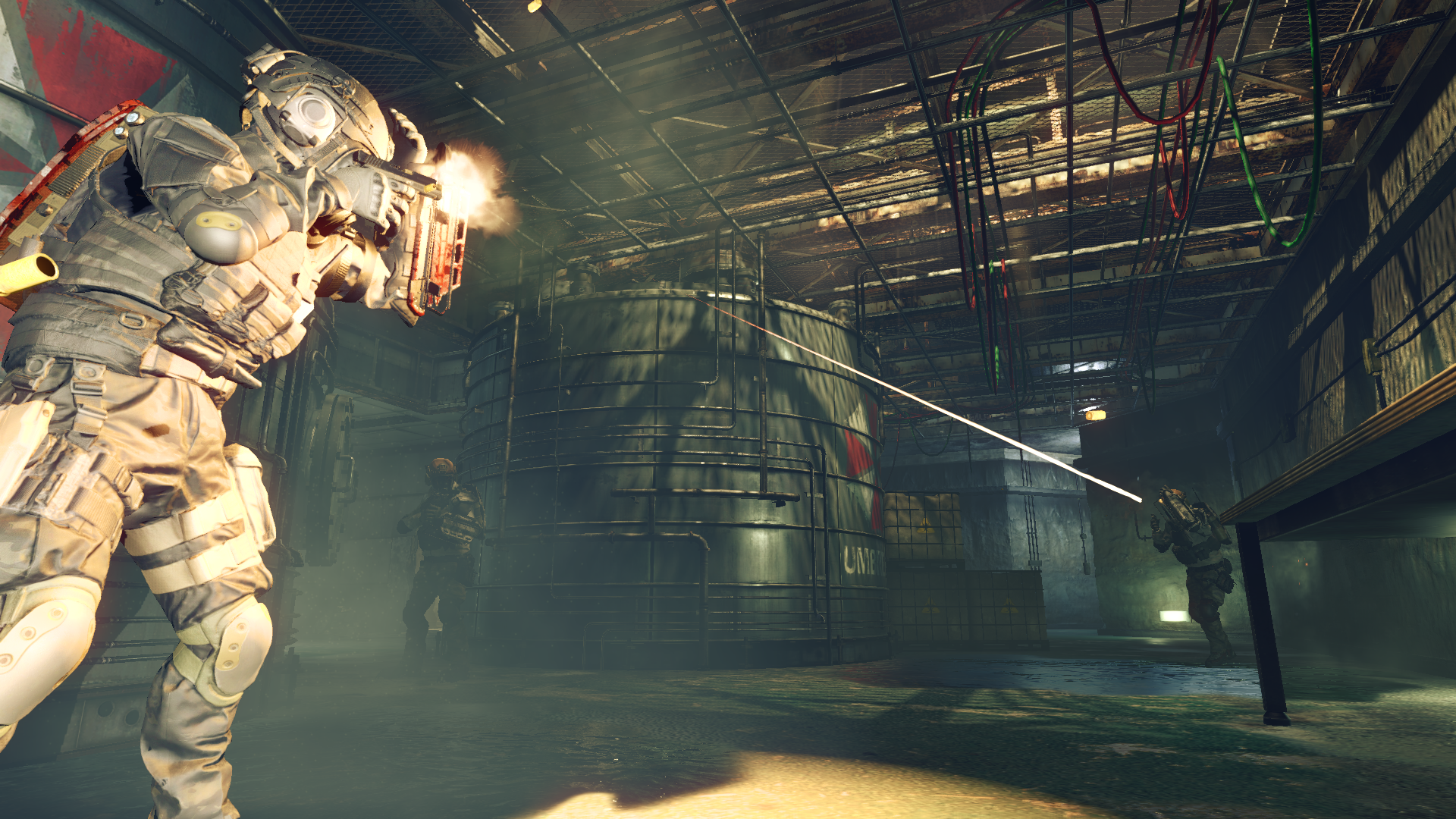 2016 was a challenging year for Capcom.
2016 was a challenging year for Capcom.
The release of *Umbrella Corps*, an online co-op shooter, was met with harsh criticism from both reviewers and fans. At the same time, *Street Fighter 5* disappointed many with its lackluster content and poor online functionality. Even *Dead Rising 4*, which brought back fan-favorite Frank West, ended up being the final new entry in its series.
This marked the lowest point in a series of difficult years for Capcom, starting around 2010. The mainline *Resident Evil* games saw declining critical reception despite strong sales, and *Street Fighter* was struggling. Other Capcom mainstays like *Devil May Cry* were absent from the scene, while *Monster Hunter*, despite its popularity in Japan, faced challenges in breaking into international markets.
"Many of us started feeling that what the fans and players wanted from the series was getting a little bit separate from what we were making."
This is a far cry from the Capcom we see today. Since 2017, Capcom has consistently delivered hit games from its most famous franchises, earning both sales and critical acclaim. The list includes *Monster Hunter World*, *Devil May Cry 5*, *Street Fighter 6*, and a series of top-notch remakes, along with an acclaimed soft reboot of the *Resident Evil* series. Capcom's recent track record suggests it's nearly impossible for them to fail.
Achieving this success required more than just learning from past mistakes. Capcom had to completely rethink its strategy, from the target audience to the technology used, to make such a dramatic turnaround possible. To delve deeper into this transformation, IGN spoke with four of Capcom's leading creatives to understand how the company managed to recover and thrive.
Capcom was founded in 1979 as a manufacturer of electronic game machines, or "capsule computers." It gained prominence in the 80s and 90s with 2D games like *Street Fighter* and *Mega Man*, and successfully transitioned to 3D with titles like *Resident Evil*. Between 2000 and 2010, Capcom managed to modernize many of its classic franchises, culminating in the creation of one of the greatest games ever: *Resident Evil 4*.
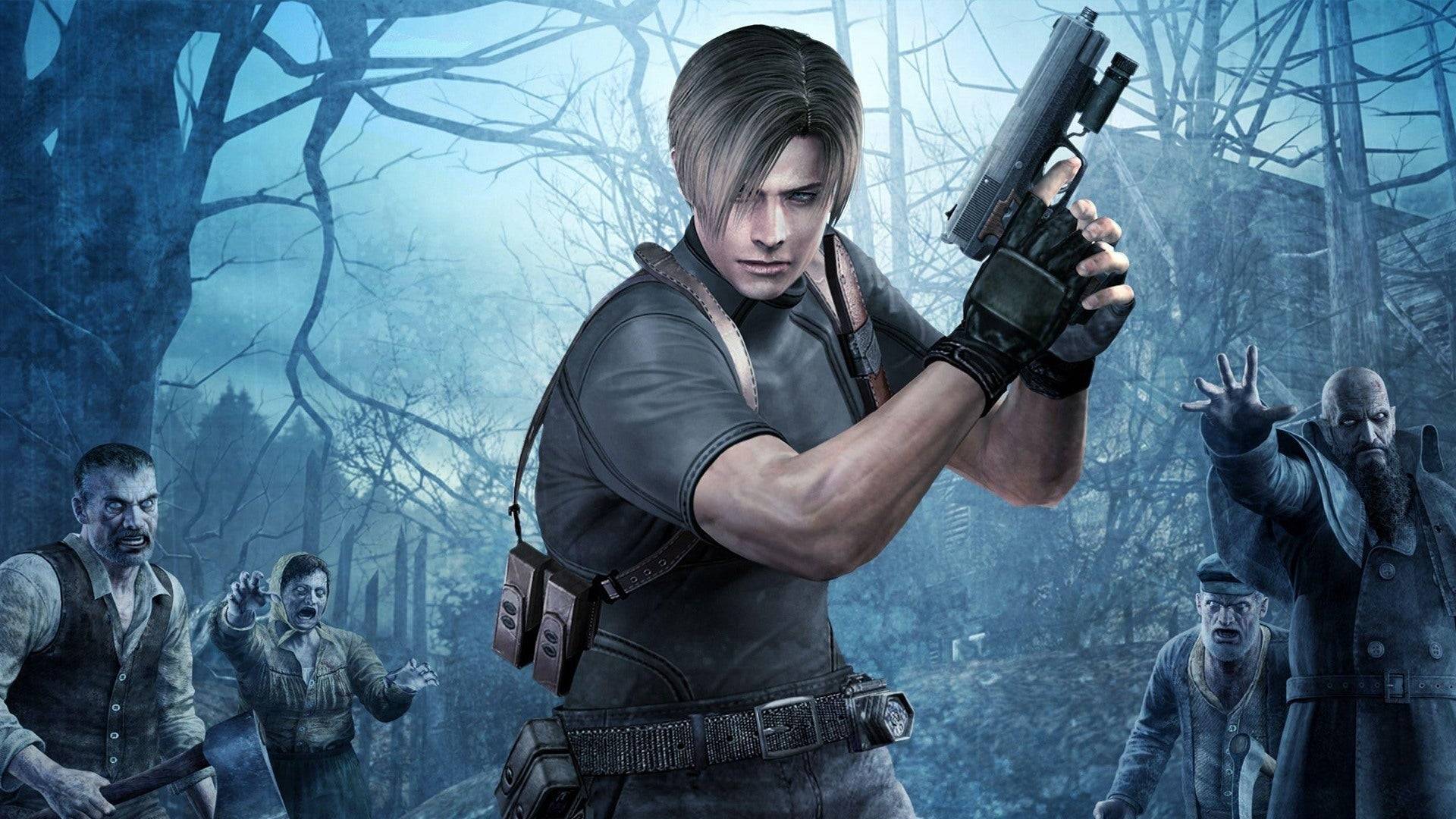 2005's *Resident Evil 4* is widely regarded as a masterpiece, blending horror with action in a way that set new standards. However, this balance was not maintained in subsequent games. *Resident Evil 5* featured scenes more reminiscent of action movies than horror, with Chris Redfield punching a boulder and engaging in car chases. The series was losing its core identity, a fact acknowledged by developers like *Resident Evil 4* remake director Yasuhiro Ampo, who has been working on *Resident Evil* games since 1996.
2005's *Resident Evil 4* is widely regarded as a masterpiece, blending horror with action in a way that set new standards. However, this balance was not maintained in subsequent games. *Resident Evil 5* featured scenes more reminiscent of action movies than horror, with Chris Redfield punching a boulder and engaging in car chases. The series was losing its core identity, a fact acknowledged by developers like *Resident Evil 4* remake director Yasuhiro Ampo, who has been working on *Resident Evil* games since 1996.
"Overall throughout the Resident Evil series, we set up different goals, challenges, and things we want to try with each game… But this time, many of us started feeling that what the fans and players wanted from the series was getting a little bit separate from what we were making," Ampo explains.
This confusion led to *Resident Evil 6*, which attempted to cater to both action and horror fans by splitting the game into multiple storylines and characters. However, it failed to strike the right balance, leaving fans unsatisfied. Similarly, Capcom's other major franchises were struggling. *Street Fighter 4* was a hit, but *Street Fighter 5* disappointed with its lack of content and poor online features. *Devil May Cry* also saw declining success, leading Capcom to outsource *DmC: Devil May Cry* to Ninja Theory, which received mixed reactions.
This period of struggle defined the Capcom of the early to mid-2010s. Key franchises couldn't replicate past successes, and new titles like *Lost Planet* and *Asura's Wrath* failed to capture the Western market. The only bright spot was *Dragon's Dogma*, a new dark fantasy RPG from *Devil May Cry* director Hideaki Itsuno. It was clear that Capcom needed a significant change.
Street Fighter 5, The Lost Cause
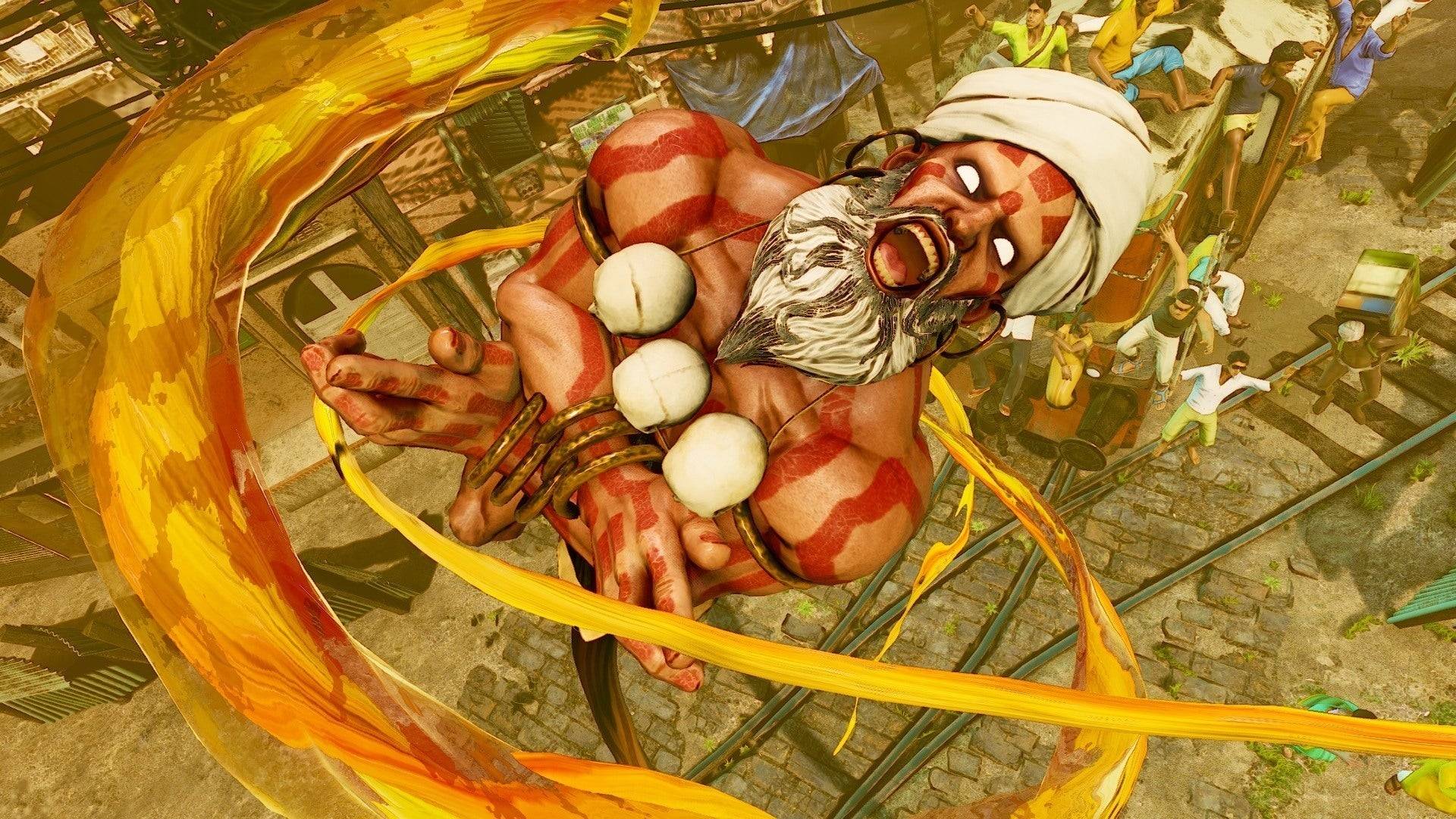 By the mid-2010s, Capcom began implementing strategic changes to turn its fortunes around. The first step was addressing the issues with *Street Fighter 5*. Director Takayuki Nakayama and producer Shuhei Matsumoto were tasked with stabilizing the game.
By the mid-2010s, Capcom began implementing strategic changes to turn its fortunes around. The first step was addressing the issues with *Street Fighter 5*. Director Takayuki Nakayama and producer Shuhei Matsumoto were tasked with stabilizing the game.
Although not involved from the start, Nakayama and Matsumoto inherited a game that needed substantial fixes to regain fan trust. "There definitely were some challenges within the production of the game, and that was part of the reason why I was brought into the team," Nakayama admits. "And because we were in a point in development where we couldn’t really make any major pivots or shifts, we had to proceed and move forward in the direction we were currently in, which created constraints on what we could and couldn’t do."
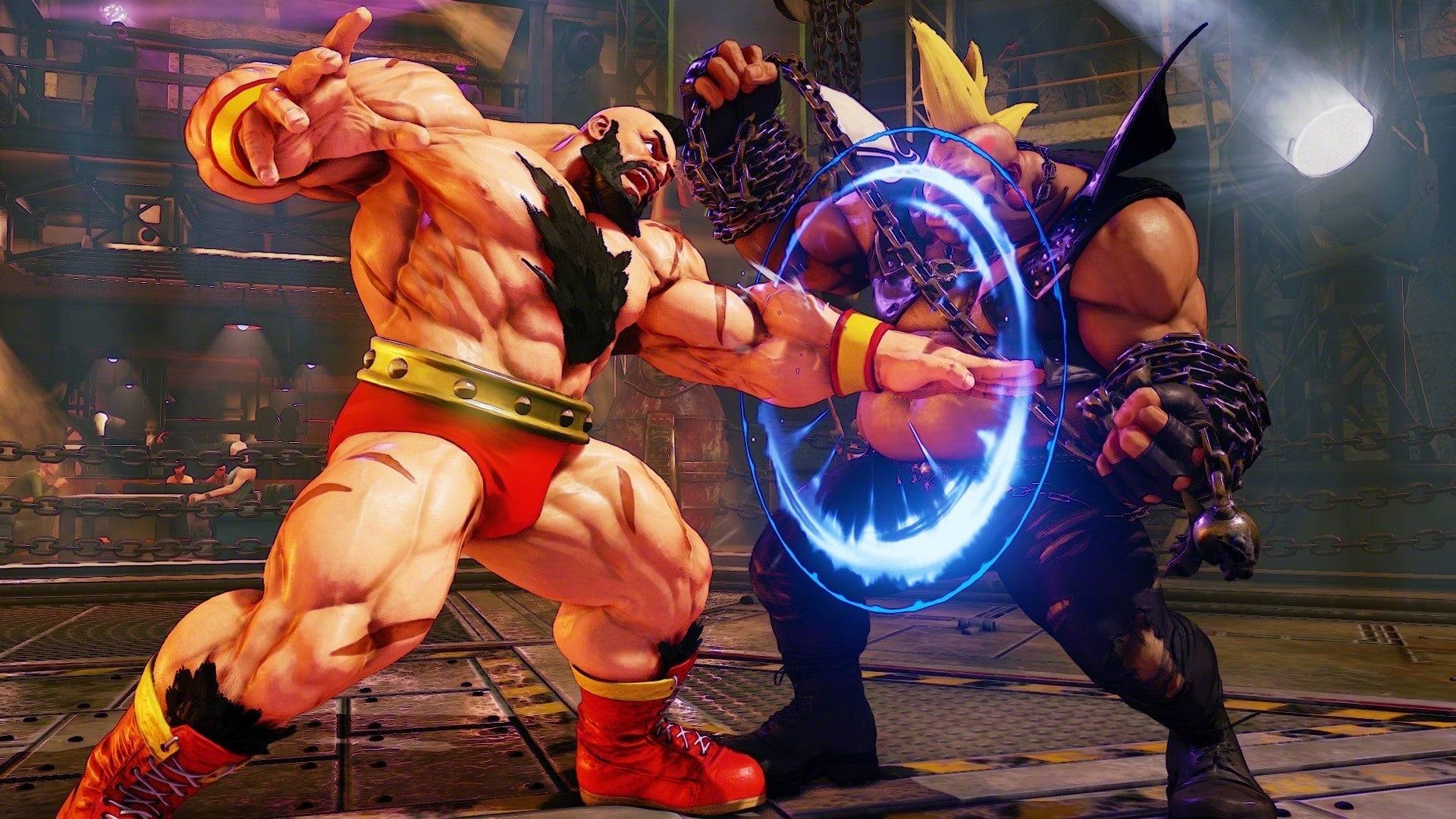 These constraints limited the scope of improvements, but Nakayama focused on addressing the most pressing issues while planning for *Street Fighter 6*. "We just didn’t really have enough time to address some of the problems and challenges we faced in Street Fighter V," Nakayama says. "And so, with our hands tied behind our backs, we basically had to wait for those ideas to be brought back for the initial conceptual phases for Street Fighter 6, so we could tackle and do things properly for the next title."
These constraints limited the scope of improvements, but Nakayama focused on addressing the most pressing issues while planning for *Street Fighter 6*. "We just didn’t really have enough time to address some of the problems and challenges we faced in Street Fighter V," Nakayama says. "And so, with our hands tied behind our backs, we basically had to wait for those ideas to be brought back for the initial conceptual phases for Street Fighter 6, so we could tackle and do things properly for the next title."
Matsumoto explains why Capcom didn't abandon *Street Fighter 5* and start fresh: "There wasn’t any sort of sense of like, ‘Okay let’s just end Street Fighter 5 and focus on Street Fighter 6.’ It was more like, while we were working on Street Fighter V, we were trying to figure out what we really wanted to do in Street Fighter 6 content-wise."
"Basically, we tried different things during the development of Street Fighter 5 to see if it worked and then we took the things that did work and applied that to Street Fighter 6. It was like the development of Street Fighter V was an ongoing process that helped us figure out, ‘Okay, what is it that we want to do for the next level?"
The team used *Street Fighter 5* as a testing ground to learn from their mistakes and refine their approach for the sequel. This involved numerous updates, from improving netcode and character balances to introducing new characters, V-Triggers, and defensive mechanics like V-Shift. The ultimate goal was to rediscover the fun in fighting games, which *Street Fighter 5* had lost.
"We both realized that fighting games are fun, and when you get used to them, it becomes more enjoyable and something you can essentially play forever as long as you have an opponent to play against," Matsumoto says. "However, one of the challenges that we faced with Street Fighter V is that we felt that there wasn’t a clear pathway that helped guide players to get to that level where they finally feel like they’re having fun and will want to continue playing."
*Street Fighter 6* aimed to be more approachable for new players while retaining the elements loved by veterans. By sticking with *Street Fighter 5* and using it as a testbed, Capcom was able to launch *Street Fighter 6* in 2023 as one of the most critically acclaimed games in the franchise.
However, Capcom needed to ensure such situations wouldn't recur, necessitating a significant shift in strategy. This led to crucial behind-the-scenes changes.
Monster Hunter Took Over The World
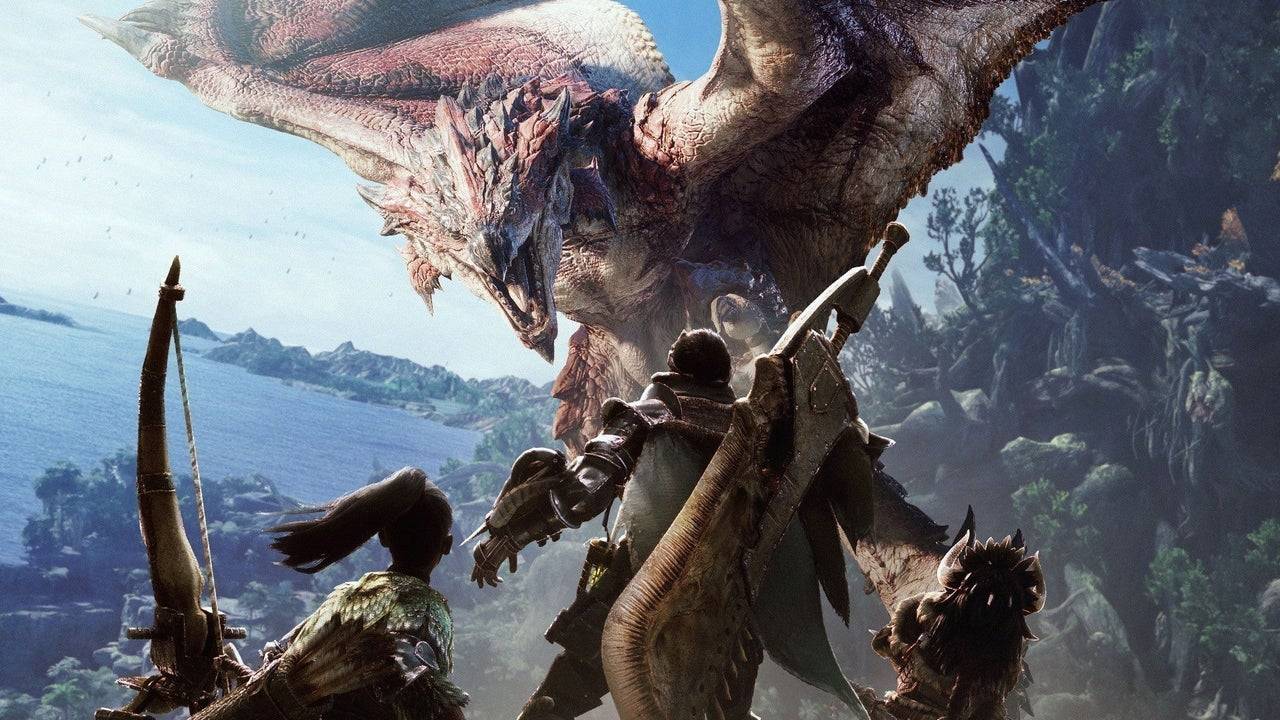 Around the time of *Street Fighter 5*'s launch in 2016, Capcom underwent an internal reorganization to prepare for a new generation of games. This involved the introduction of the RE Engine, a significant upgrade from the aging MT Framework. This change was not just about tools; it also included a new mandate to create games for a global audience.
Around the time of *Street Fighter 5*'s launch in 2016, Capcom underwent an internal reorganization to prepare for a new generation of games. This involved the introduction of the RE Engine, a significant upgrade from the aging MT Framework. This change was not just about tools; it also included a new mandate to create games for a global audience.
"It was a few factors that came together," says Hideaki Itsuno, a former game director at Capcom known for his work on *Devil May Cry*. "The change of the engine and also all teams were given a very clear goal at that point to make games that reach the global market. [Games] that are fun for everyone."
During the PS3 and Xbox 360 era, Capcom focused on capturing the Western market, as seen with the action-heavy *Resident Evil 4* and other titles like *Umbrella Corps* and *Lost Planet*. However, these efforts were largely unsuccessful. Capcom realized it needed to create games that appealed to everyone, not just fans of Western genres.
"I think that we had that clear goal of just focusing and not holding anything back," Itsuno says. "Towards making good games that would reach people from all over the world."
The period leading up to 2017 was pivotal, with the release of *Resident Evil 7* marking the beginning of a Capcom renaissance. No other series better embodies Capcom's new goal of global success than *Monster Hunter*. While it had a dedicated Western fanbase, *Monster Hunter* was significantly more popular in Japan due to its success on handheld consoles like the PSP.
"20 years ago in Japan, having a network connection wasn't as easy, and there weren’t a huge amount of people playing Monster Hunter online. However, handheld consoles made multiplayer gameplay easy without internet access, and I regard it as a great success that we had players experience the game in this way, which was one of the ways we really wished for them to play and enjoy it, even in that era when online gameplay wasn't easy," explains *Monster Hunter* executive producer Ryozo Tsujimoto.
*Monster Hunter* was designed around cooperative play, which was best facilitated by handheld consoles in Japan. This led to a cycle where *Monster Hunter* became a Japan-centric brand, with Japan-only content and events further reinforcing this perception.
However, *Monster Hunter* did have Western fans who envied the exclusive content available to Japanese players. With improved internet infrastructure in the West, Tsujimoto saw an opportunity to launch a more globally accessible *Monster Hunter* game.
*Monster Hunter: World*, released in 2018 on PlayStation 4, Xbox One, and PC, marked a significant shift for the franchise. It offered large-scale, AAA console-quality action with enhanced graphics, larger areas, and bigger monsters. "Our approach to the globalization of the series and Monster Hunter in general really ties into not only the themes that we had going into designing the game, but also in the name of the game," Tsujimoto reveals. "The fact that we called it Monster Hunter: World is really kind of a nod to the fact that we wanted to appeal to this worldwide audience that we wanted to really dig into and experience Monster Hunter for the first time."
*Monster Hunter: World* was released simultaneously worldwide, without Japan-exclusive content, aligning with global standards. To broaden its appeal, Capcom conducted global focus tests, leading to changes like displaying damage numbers, which helped drive the game's success. *Monster Hunter: World* and its 2022 follow-up, *Monster Hunter Rise*, both sold over 20 million copies, a significant leap from the franchise's previous sales figures.
"The fact that we called it Monster Hunter: World is really kind of a nod to the fact that we wanted to appeal to this worldwide audience that we wanted to really dig into and experience Monster Hunter for the first time."
This growth wasn't accidental. Tsujimoto and his team found ways to make *Monster Hunter* more accessible without compromising its core identity. This approach continues with the latest game, *Monster Hunter Wilds*.
"At its heart, Monster Hunter really is an action game, and that sense of accomplishment you get from really mastering that action is an important aspect of Monster Hunter," Tsujimoto explains. "But for newer players, it's really about getting to that point. The steps involved in getting to that sense of accomplishment is what we're trying to strategize for, in terms of designing for new players. So with World and Rise, for example, we were taking great care to analyze where players got stuck, what was hard to understand, what they were having trouble with, getting player feedback, and also doing our own kind of research into that. And all of that kind of knowledge has impacted how we've implemented new systems into Wilds."
Resident Evil 7 Began Turning Things Around
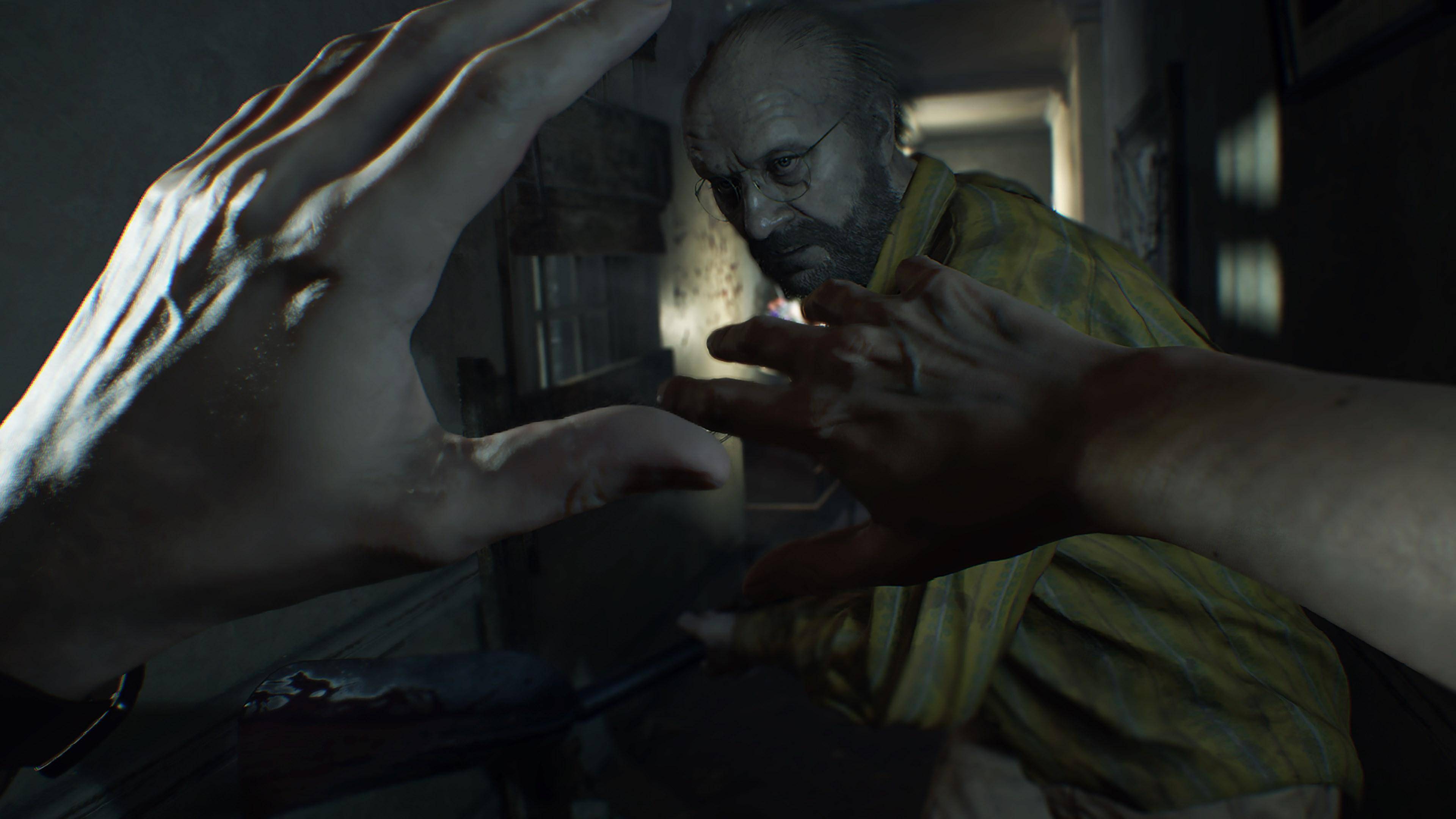 *Monster Hunter* had a winning formula, but the challenge was convincing global audiences to embrace it. For *Resident Evil*, the development team faced a decision: should they focus on gory action or return to survival horror? Executive producer Jun Takeuchi made the call to return to the series' roots.
*Monster Hunter* had a winning formula, but the challenge was convincing global audiences to embrace it. For *Resident Evil*, the development team faced a decision: should they focus on gory action or return to survival horror? Executive producer Jun Takeuchi made the call to return to the series' roots.
"It was around the time I was working on Resident Evil Revelations 1 and 2. I was trying to test different things, try different approaches," recalls *Resident Evil 2* and *4* Remake director Yasuhiro Ampo. "And around this time is when the R&D teams were divided into R&D division one and two. The executive producer of the Resident Evil series, Jun Takeuchi, took command of R&D division one, and he set the core direction that the Resident Evil series needed to go back to its origins, to its roots."
Takeuchi decided that *Resident Evil* should focus on survival horror. This decision paid off with *Resident Evil 7*, announced at PlayStation's E3 2016 conference with a first-person perspective trailer that excited fans. "We cannot underestimate how critical it is for the series for it to be scary," Ampo says.
*Resident Evil 7* successfully returned the series to its survival horror roots, becoming one of the scariest games in the franchise thanks to its southern gothic setting. While *Resident Evil 7* and *8* retained the first-person perspective, Capcom also planned third-person remakes, starting with *Resident Evil 2*.
"It was like, 'all right people really want this to happen.' So producer [Yoshiaki] Hirabayashi came up with the slogan: 'Well, we’ll do it,'" Ampo reveals.
The *Resident Evil 2* remake was a critical and commercial success, blending horror with action and introducing the menacing Mr. X, becoming the second best-selling game in the franchise's history.
Following this success, Capcom remade *Resident Evil 3* and then tackled *Resident Evil 4*, despite initial hesitation due to its beloved status. "As you mentioned, [Resident Evil 4] was still a title that enjoyed some popularity. So there was a lot of internal discussion on how maybe it’s not a good idea. Maybe we don’t need a remake for Resident Evil 4, especially because Resident Evil 4 is a game that is so beloved. If we get anything wrong with the remake, people might be quite vocal about their discomfort," Ampo explains.
Despite the concerns, the *Resident Evil 4* remake was a hit, fine-tuning the action-horror balance and maintaining the series' survival horror essence.
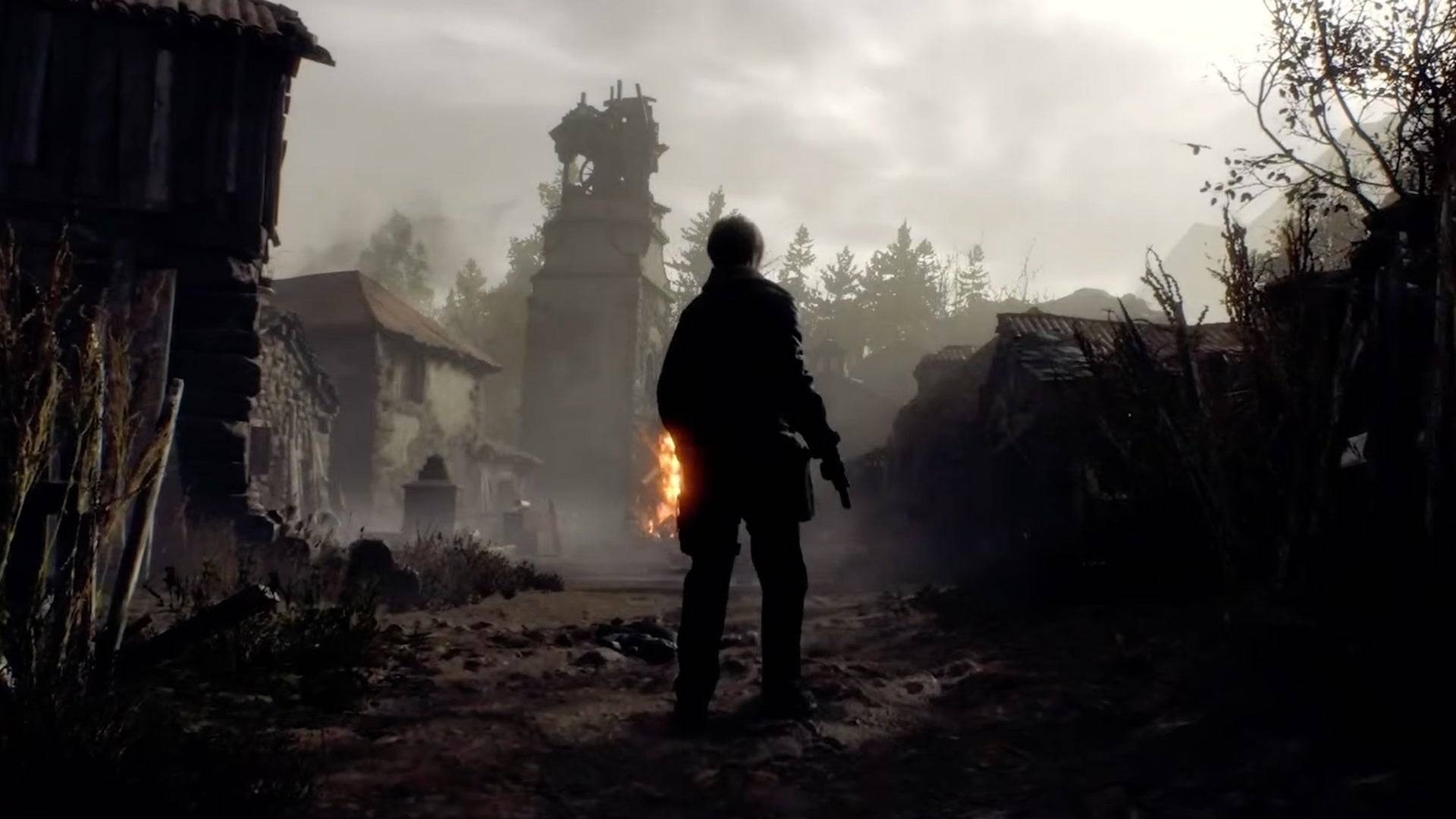 At the same time, *Devil May Cry* director Hideaki Itsuno, after working on *Dragon's Dogma*, saw an opportunity to reinvigorate the action genre with *Devil May Cry 5*. Leveraging Capcom's powerful new RE Engine, Itsuno aimed to create the coolest action game possible.
At the same time, *Devil May Cry* director Hideaki Itsuno, after working on *Dragon's Dogma*, saw an opportunity to reinvigorate the action genre with *Devil May Cry 5*. Leveraging Capcom's powerful new RE Engine, Itsuno aimed to create the coolest action game possible.
The Reason Behind The Change
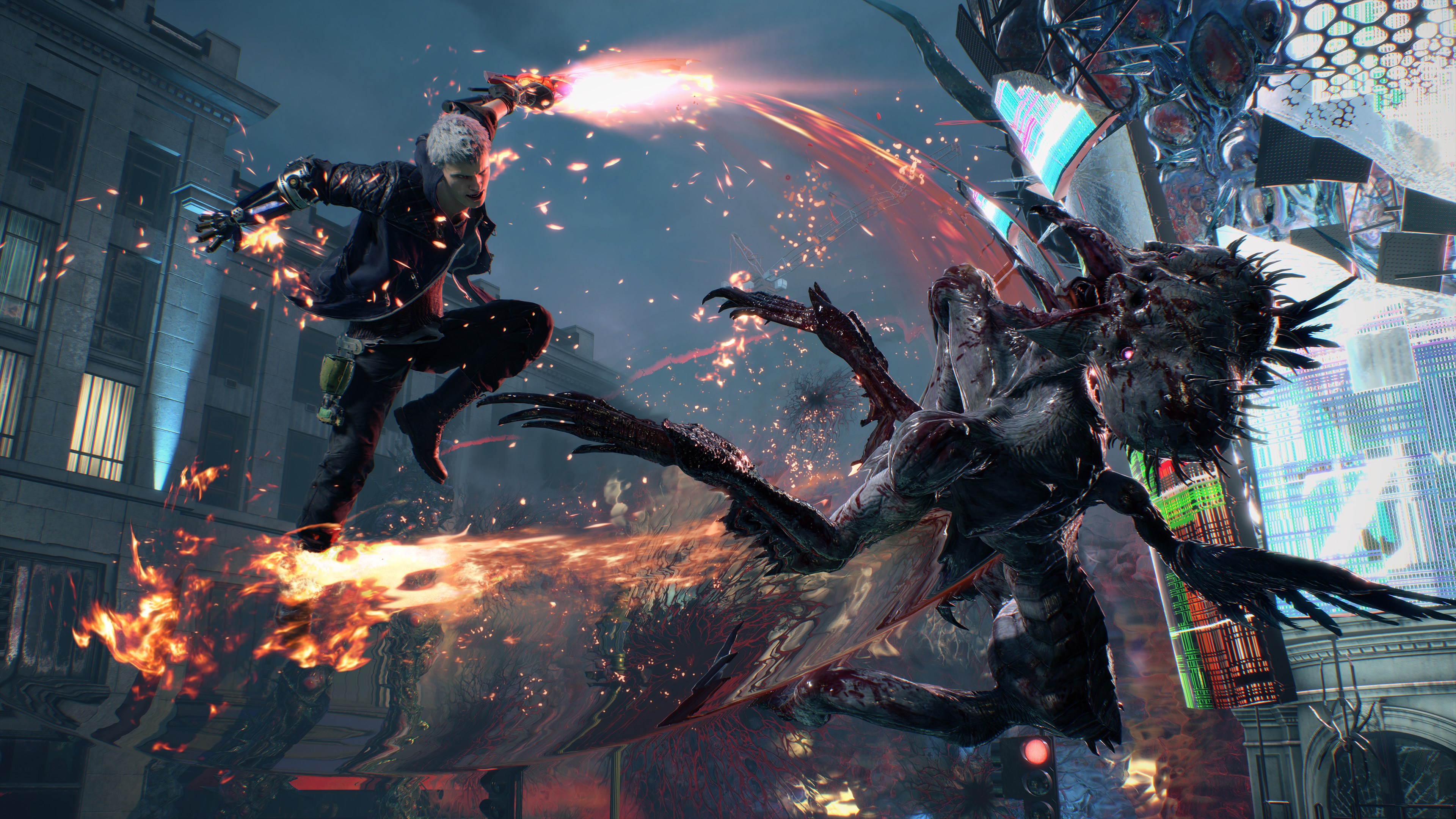 "I felt like the main trend with action games was to make action games that were very kind," Itsuno admits. "Maybe, for me, a little bit too kind to the players, lending a hand to the player too much to my liking."
"I felt like the main trend with action games was to make action games that were very kind," Itsuno admits. "Maybe, for me, a little bit too kind to the players, lending a hand to the player too much to my liking."
Itsuno, who directed *Devil May Cry* starting with the second game, returned to the franchise after an 11-year hiatus with *Devil May Cry 5*. The time away allowed him to refine his vision, and the new RE Engine provided the technological edge needed to realize it. "Technology-wise, there were not just little improvements that you would have when you work on a series consecutively," Itsuno says. "When there’s a wide timeframe, [the technology] changes significantly."
The RE Engine, which powers most of Capcom's current games, replaced the MT Framework and offered superior handling of photorealistic assets. It also allowed for quicker development and easier implementation of changes. "So the original concept for the RE Engine was to allow for a development environment that was less stressful and could help us to make things quicker. Because it’s an internally developed engine, when we needed any additional tools, well, we could ask for them internally. They could be fixed somewhat quickly, internally, and also iterated on," Ampo explains.
This flexibility was crucial for Itsuno, who aimed to make the "coolest" action game. "Devil May Cry is a franchise that stands on being cool," Itsuno says. "That’s what the franchise is, it’s about being cool. Ever since I took over the series from Devil May Cry 3, I put everything that I, as a person, I considered throughout my life to be cool. Anything I’ve seen on TV, in movies, and comics I’ve read, any sport experiences I’ve had, I try to distill everything that I think is cool into what the game is."
A New Capcom Golden Age
Since 2017, Capcom has consistently released critically acclaimed games, achieving a remarkable streak of 10 major hits in less than a decade. This success is attributed to their focus on creating globally appealing games, powered by the advanced RE Engine, which supports a wide range of genres.
Capcom's strategy of making mainstream games without diluting their core identities has paid off. Whether it's the survival horror of *Resident Evil*, the competitive spirit of *Street Fighter*, or the unique battle systems of *Monster Hunter*, Capcom has managed to expand its audience while staying true to its roots.
Many of Capcom's competitors are now facing the same challenges Capcom overcame a decade ago. However, Capcom's strategic changes have ushered in a new golden age, showing no signs of slowing down.
When asked if this is a new Capcom Golden Age, the directors largely agree. *Street Fighter*'s Nakayama says, "It’s a very exciting time to be at Capcom right now. A lot of us are able to get excited about what we’re working on and are able to focus on things that we think are fun. So, yes, I guess a golden age may be one interpretation of that."
*Monster Hunter*'s Tsujimoto adds, "Capcom is going through a golden era, and, well, now we have to do everything we can so that this lasts one more year, one more year, and every year, one more year. Hopefully we can extend it as long as we can."

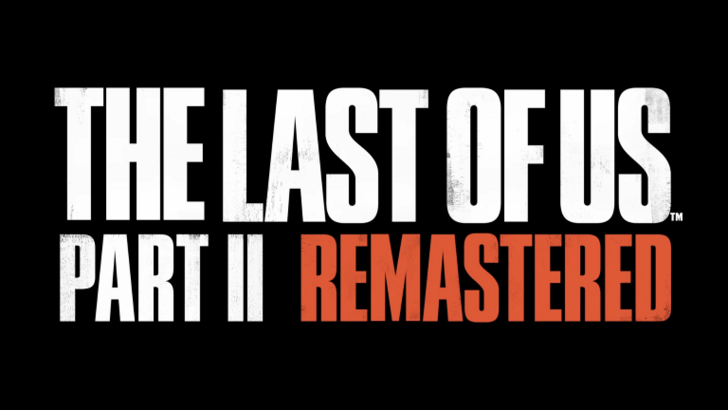
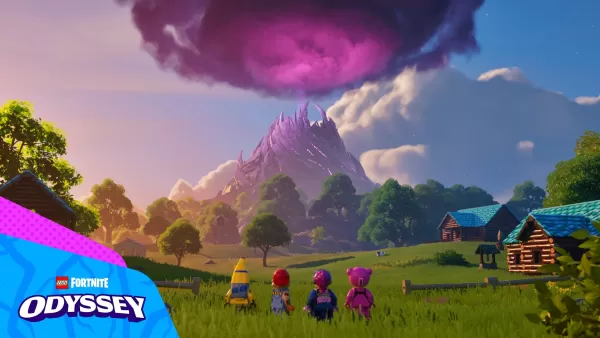
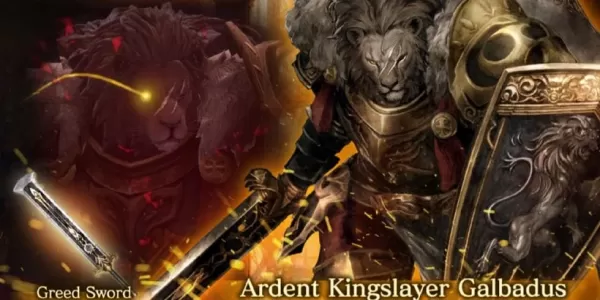



![Chubby Story [v1.4.2] (Localizations)](https://images.737c.com/uploads/85/1719638042667f981a5e9f8.jpg)

